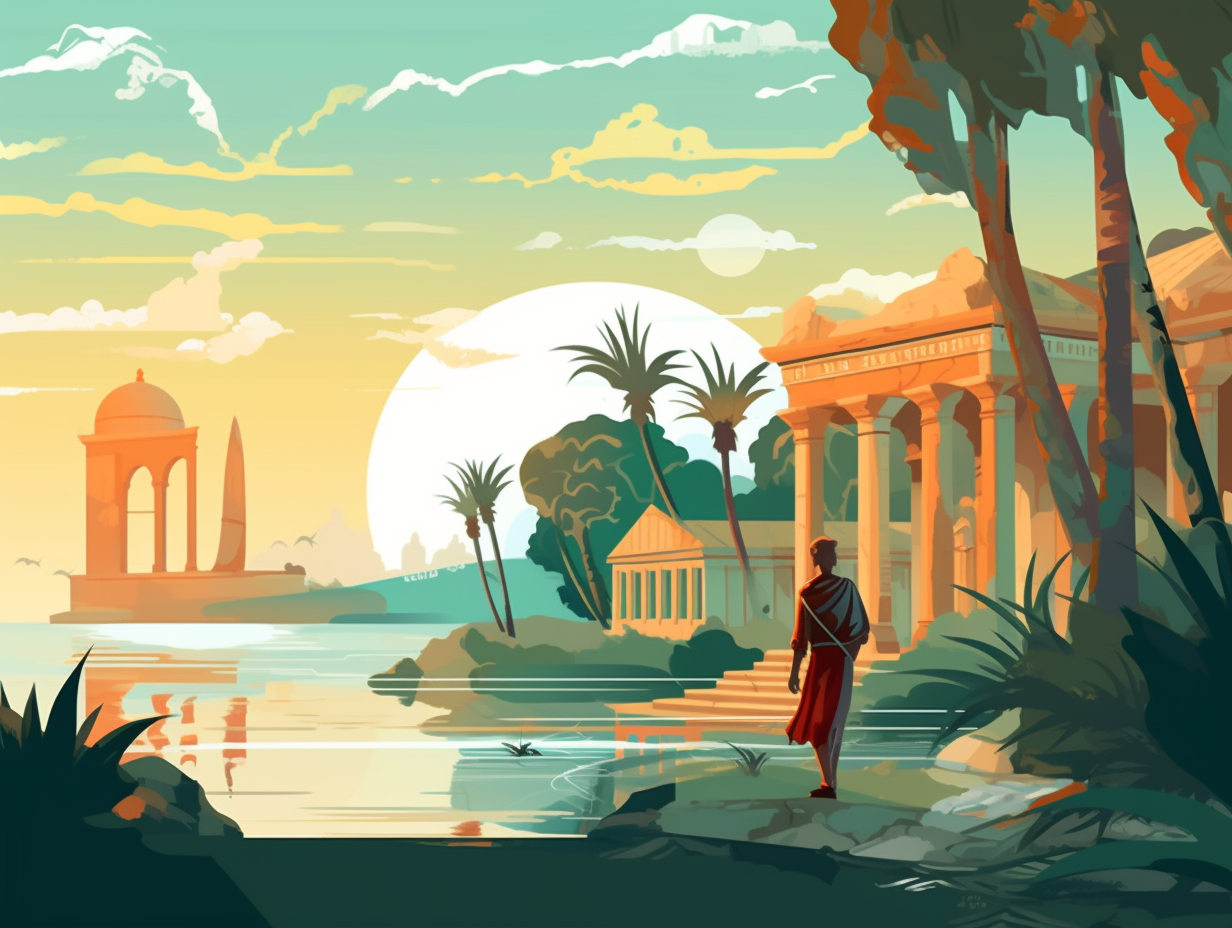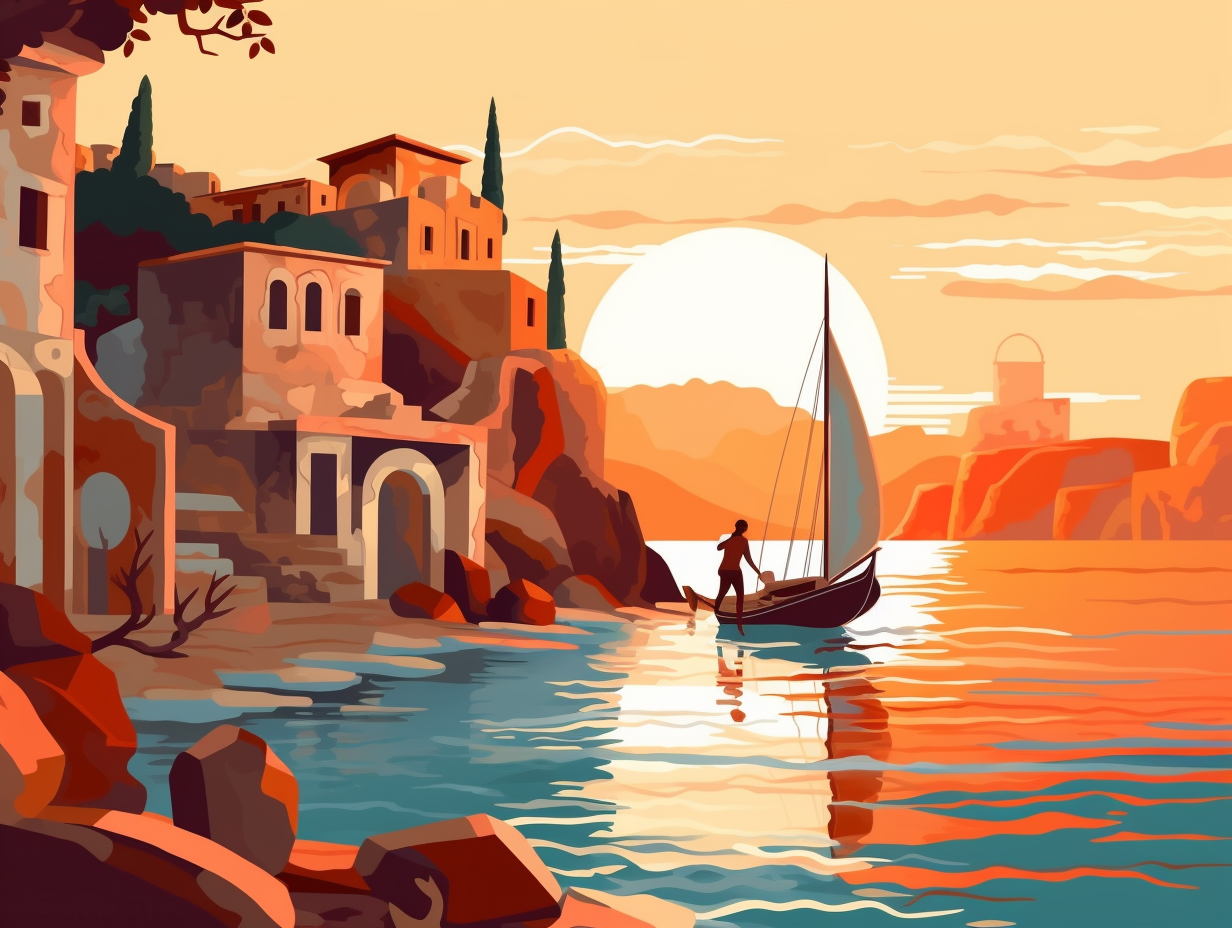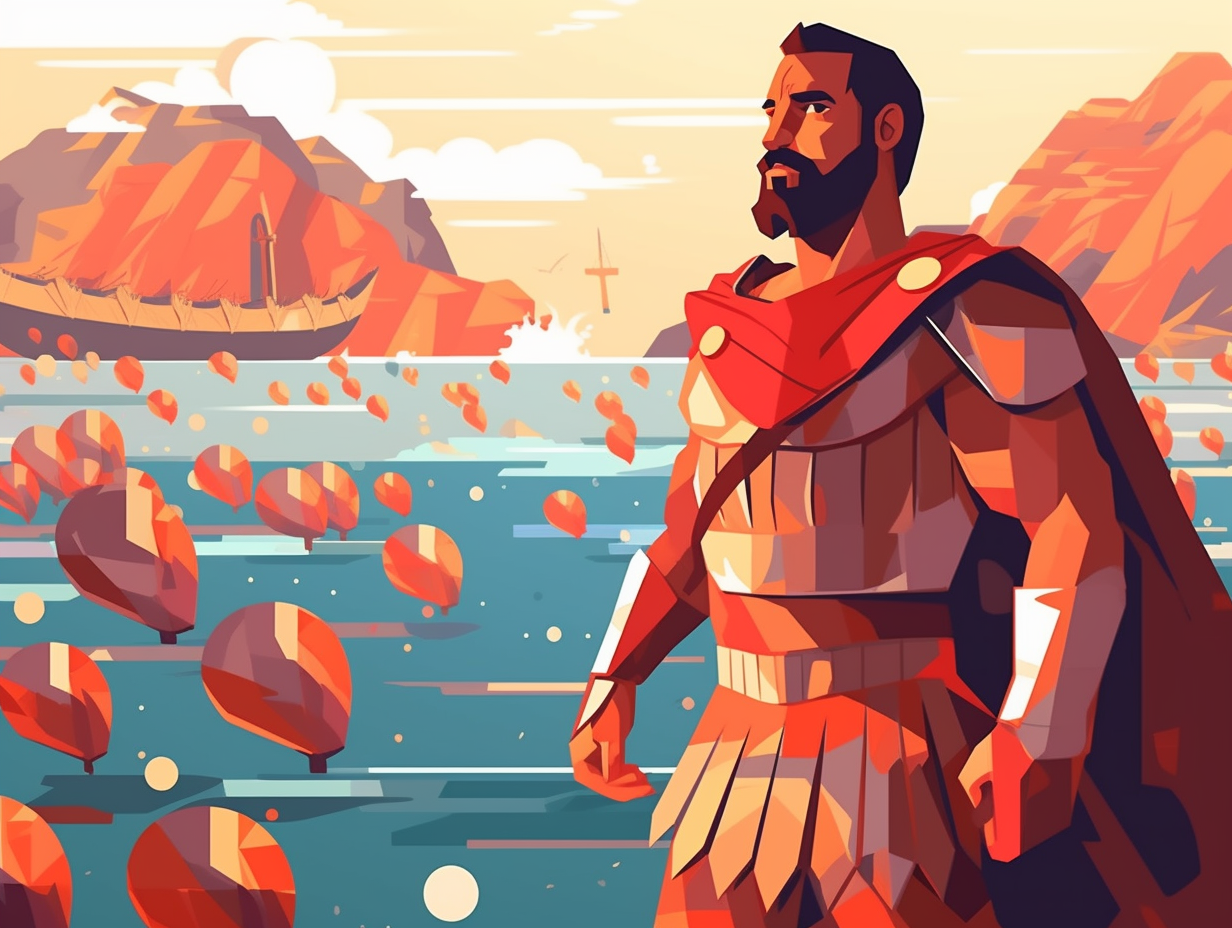Discover Carthage: 9 Fascinating Fun Facts You Never Knew About This Ancient Civilization

1. Fashion Faux Pas
When it came to accessorizing, Carthaginians weren't exactly the bees' knees of haute couture: their jewelry often featured glass beads shaped like male heads, semi-precious stones carved into amulets, and gold pendants resembling fruits rather than intricate, nature-inspired designs.
Source => worldhistory.org
2. Salty Symbolism
Ancient Roman reboot: Forget Ctrl+Alt+Delete, the Romans preferred the salt, scatter, and banish technique to ensure their enemies stayed down for the count: Contrary to popular belief, there's no concrete evidence that Carthage fell victim to the symbolic salting practice after the Third Punic War, but Shechem suffered such a fate at the hands of Israelite judge Abimelech, which may have sparked the myth.
Source => en.wikipedia.org

Discover the ancient world's premier shopping destination, Trajan's Market in Rome, a multi-story marvel that featured not only shops but also offices, apartments, and even a library! Explore its rich history and imagine the bustling atmosphere of the past.✨🛍️🏛️
=> Fun Facts about Rome
3. Elephants on Tour
When life gives you elephants, make an epic military journey: Hannibal Barca, commander of the Carthaginian army, took his soldiers, horses, and war elephants on an alpine adventure to wage a surprise attack on Rome, enduring harsh winter conditions and lasting 15 years, all before the Roman general Scipio Africanus defeated him at the Battle of Zama in 202BC.
Source => theguardian.com
4. Hydration High-Tech
Did ancient Carthaginians just have a legendary thirst, or were they way ahead of their time? The evidence is crystal clear – or should we say, "water clear"?: Carthage boasted one of the most advanced water management systems of its time, with complex catchment basins, subterranean cisterns, and aqueduct networks that ensured the city stayed hydrated in its dry, arid climate. Alas, even the swankiest plumbing couldn't save Carthage from Roman demolition, but its ingenious innovations still fascinate and inspire modern-day archaeologists and engineers alike.
Source => en.wikipedia.org

5. Harbor Haven
If you think YOU have an impressive harbor port-folio, Carthage must have been in real-estate heaven, dripping in riches and Mediterranean trade goodness: In its prime, Carthage boasted over 200 docks in its magnificent harbor, solidifying its status as the wealthiest city in the Med region and paving its golden way in literature, theater, and the "Carthaginian's Got Talent" hall of fame.
Source => nationalgeographic.org
6. Swanky Salesmanship
If the Wolf of Wall Street were to jump into a time machine and land in ancient times, he'd probably fit right in with the Carthaginians: masters of swanky salesmanship, and trading aficionados. Their impressive network spanned North Africa, the Iberian Peninsula, and Mediterranean islands, dealing in everything from precious metals to high-quality products and even slaves. Fun fact: despite common belief, these savvy Carthaginian sailors didn't actually set up shop throughout the Mediterranean, but boy, did they know how to sell at a price!
Source => worldhistory.org
7. Purple Gold
Whoever said purple is the new gold must have gotten a sneak peek at Mouhamad Ghassen Nouira's wardrobe: This history enthusiast in Tunisia has successfully recreated the legendary Tyrian Purple dye, once valued more than gold by the ancient Phoenician civilization. Nouira's method, much like the Carthaginians of yore, involves extracting glands from 54 kilograms of murex snail shells just to produce one gram of the precious pigment, which was a crucial trade item in their Mediterranean mercantile empire.
Source => reuters.com
8. Maritime Menace
Ahoy, mateys! In ancient times, Carthage was the Jolly Roger of the Mediterranean, pillaging the seas with its fearsome naval fleet and leaving adversaries shaking in their togas: This maritime powerhouse boasted an impressive navy and employed a diverse crew of foreign mercenaries from places like Iberia, Gaul, and Libya to conquer lands and expand their trade empire, leaving no stone – or sand – unturned.
Source => en.wikipedia.org
9. Sacrifice Scandal
Don't throw the baby out with the bathwater, or in Carthage's case – sacrifice it to the gods: While some sources suggest people of ancient Carthage were fans of infanticide in the name of Moloch, other historians like Livy and Polybius don't mention it, leaving modern archaeologists debating whether their infant burials are a chilling hint of ritual sacrifice, or just the result of nature's grim miscarriages.
Source => ancient-origins.net
Related Fun Facts




















